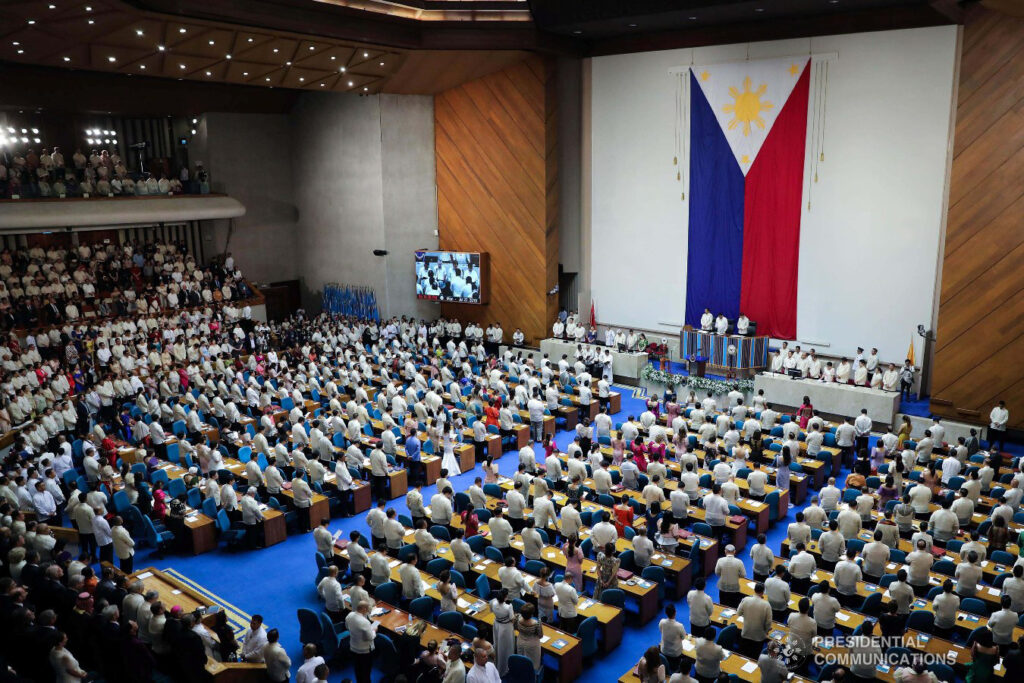The House Committee on Information and Communication Technology has passed this week House Bill 70812 that proposes the development and broad use of satellite technology in the digital economy to serve even the remotest areas in the country.
Albay Rep. Joey Sarte Salceda, chair of the House Ways and Means, the bill’s author said “satellite based-internet broadband as one of the country’s modes for making internet access more inclusive and more diffused, is an alternative that can be quickly and easily deployed.”
Salceda said satellite liberalization is important because “in some far-flung areas, it’s too expensive for companies to set up broadband or fiber, but Satellites don’t have that problem; Satellite-based internet will help bring prosperity to the countryside.”
“The farther a community is from a main island like Luzon or Mindanao, the less likely one is to have internet access. That is a source of inequality in wealth among regions, especially now that many economic opportunities are tech-based,” he added.
The Albay lawmaker said internet access is like the land reform of this generation. “As wealth becomes more and more tech-based, and jobs become more available online, we need to ensure every Filipino has access to cheap, reliable internet,” he added.
“Because they do not rely on wire-based systems, satellite-based internet can service rural areas and even the most far-flung islands in the country. Currently, satellite-based internet is also becoming more capable of delivering bandwidth similar to that of traditional, fiber-based systems,” Salceda noted.
The lawmaker said Covid-19 has made internet connectivity almost an essential part of the country’s economic continuity and recovery strategy and without it, the country’s work-from-home programs would fail flat.
Even with the internet connectivity, however, the country’s slow internet speeds and expensive costs are making work-from-home and distant learning strategies difficult and costly to execute, he said.
AS NOTED, in a country where enrollment is far from universal in many areas, despite public education being entirely free, the costs associated with connecting to the internet are added burden to struggling families and can further dissuade students from enrolling during the pandemic.
HB 7081 proposes that access to satellite-based technology will be made more inclusive, and the regulatory framework clearer. The Department of Information and Communications (DICT) is more explicitly mandated in-charge of regulating the use of satellite based technologies outside of commercial telecommunications.
The bill also allows internet service providers and value-added services or VAS providers to build and operate their own network using satellite technology to broaden the competition among ISPs, and eventually lower the costs and improve the benefits for consumers, said Salceda.
The specific requirements for connecting to satellite – setting up of hub and network of so called very small aperture terminals or VSATs, which could be used to distribute bandwidth across end-users through cable or Wi-Fi – is ideal for public schools and community centers in remote rural areas, the lawmaker pointed out.
Salceda said HB 7081 also encourages government organizations, public and non-profit private educational institutions, volunteer organizations engaged in education, environmental and climate change managements, disaster preparedness and crisis response outfits to own and operate satellite based tech ology to aid and augment their activities.
The proposal complements four other bills also crafted by Salceda: Faster Internet (HB 312), Schools of the Future (HB 311), Comprehensive Education Reform (HB 6247), and Skills-based Education (HB 6287).
Quoting DICT reports, Salceda said there are presently 48 satellites ready to deliver bandwidth to the Philippines but current policy on the use of satellites, based on EO 467 of 1998 restricts access to International Fixed Satellite Systems to “enfranchised telecommunications entities authorized by the National Telecommunications Commission” to provide international telecommunications services,” and broadcast services providers.
